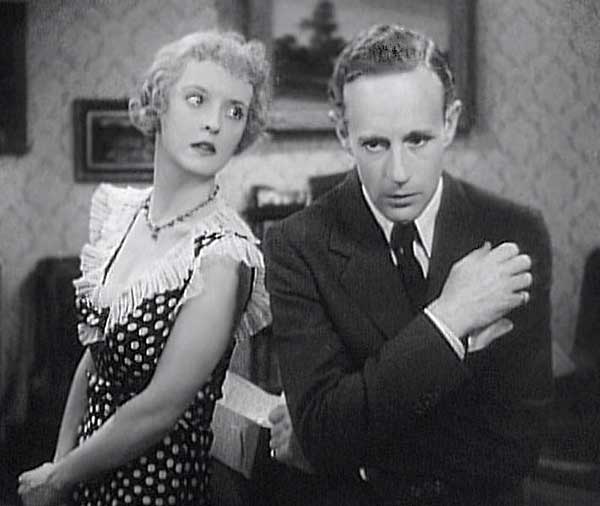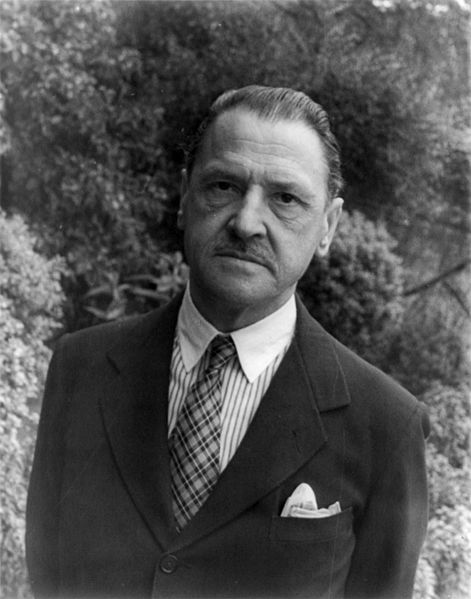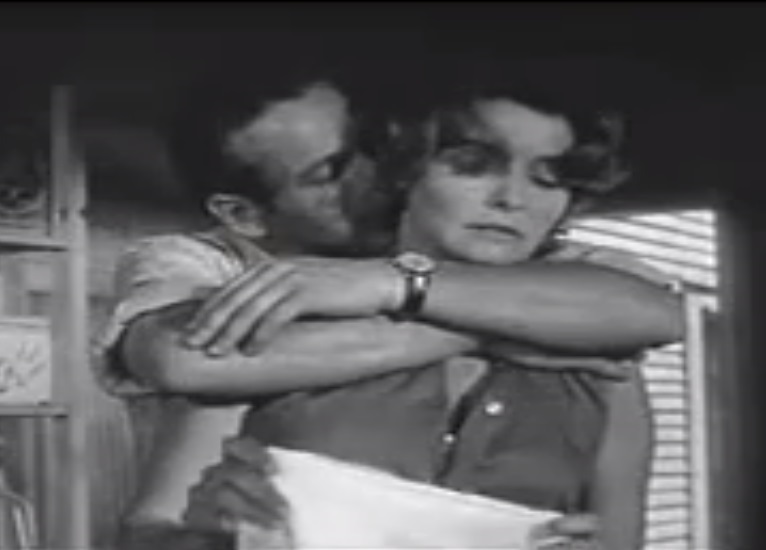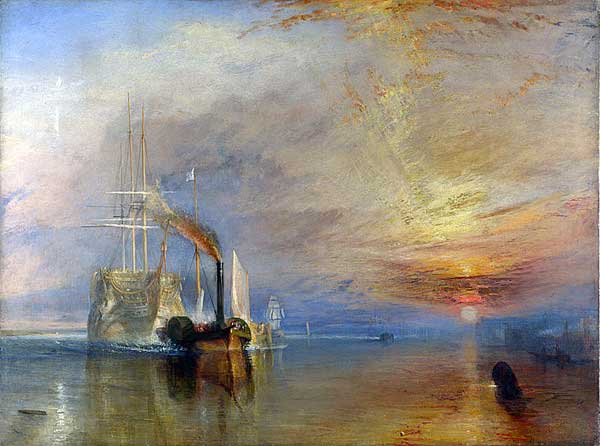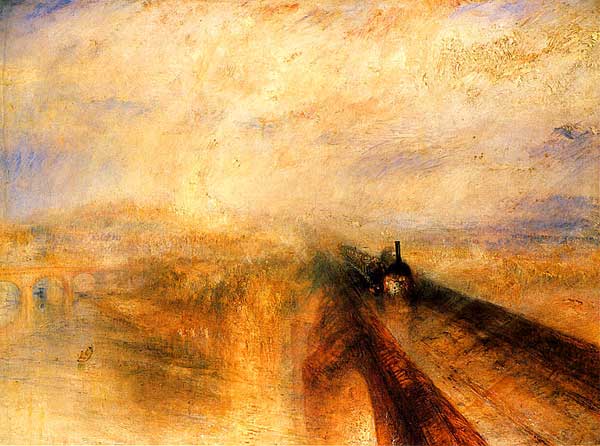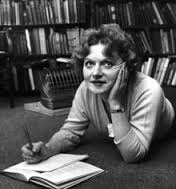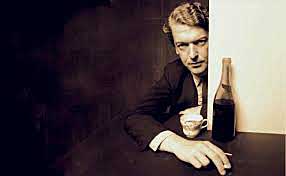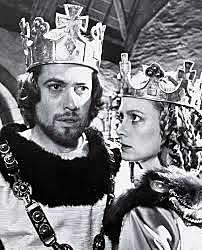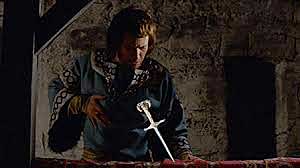The Varnished Culture's Thumbnail Reviews
Regularly added bite-sized reviews about Literature, Art, Music & Film.
Voltaire said the secret of being boring is to say everything.
We do not wish to say everything or see everything; life, though long is too short for that.
We hope you take these little syntheses in the spirit of shared enthusiasm.
Landscape and Memory

(by Simon Schama) (1995)
This is an art history, but written from the psychiatrist’s couch. It is a cultural – that is to say, a psychological – sociology of the product of human minds under stimulus from our ‘natural’ environment – wood, water, stone – primarily judged from the perspective of the visual arts.
Schama observes that even landscapes we consider unspoilt bear our imprint, largely due to our own awareness, but maintains that the natural environment can be both celebrated and cosseted through the machinery of our cultural memory. It is a perverse argument, Freudian almost, but what makes the book worthwhile is the extraordinary magpie-mind of the author, who draws the threads of what we may loosely call his ‘argument’ from such a rich and inspirational stock of sources that one is dazzled and persuaded, not by logic but sheer weight of wonderful evidence. It’s a mad, beautiful work of arts.
Continue Reading →Black Mass

(Dir. Scott Cooper) (2015)
Johnny Depp is good when he is serious (“Dead Man“, “What’s Eating Gilbert Grape”, “Finding Neverland”, “Donnie Brasco”) and terrible when he is being silly (“Mortdecai”). TVC suspects that he is good in this very serious would-be “Goodfellas“. But it’s hard to say because the pale contact lenses and the weird comb-over skullcap which have been inflicted on him are too silly to allow the viewer to be sure of anything. Similarly, Joel Edgerton’s brow keeps disappearing under his off-centre werewolf widow’s peak and Jesse Plemons (a plumped-up Todd from “Breaking Bad”) is hidden underneath a wild-man clown fright wig. The script, based on books about the real-life James “Whitey” Bulger and his Winter Hill Gang of Boston, is similarly burdened with piles of angry tirades and gangster-set-pieces. Unlike other productions which are good enough to escape the transcendental distraction of bad wigs and make-up, Black Mass leaves the viewer confused and bemused.
[P agrees and adds: what is it with Joel Edgerton? In The Great Gatsby, he talks like Ron Burgundy and in Black Mass, he looks like Ron Burgundy…] Continue Reading →A Passage to India

(E. M. Forster) (1924) (Dir. David Lean) (1984)
“Oh, East is East, and West is West, and never the twain shall meet,
Till Earth and Sky stand presently at God’s great Judgment Seat”
Thus Kipling’s famous ballad, which Forster, with a surgical pen, turns into a captivating novel that somehow fails to entirely succeed in nailing perfidious Albion, and which David Lean, with cameras, cement mixer and trowel, utterly fails to achieve much of anything.
Continue Reading →Giant

(by Edna Ferber)
I’m going to the ACCC. I bought this novel expecting an “epic inter-generational family saga, sweeping across the vast Texan plains” as advertised. Instead I got a primer on the great state of Texas. The reader, personified by our delicate naïve Eastern bride Leslie asks the questions and her big bold Texian husband Bick, lord of the immense Reata ranch acreage answers:
“‘Oh Jordan, I wish we could live up here in the mountains. I wish we could stay up here and Uncle Bawley could run Reata. Couldn’t he? Couldn’t he?’
‘Get this, If you can understand anything that isn’t Virginia and pink coats and hunt dinners and Washington tea parties. Just get this. I run Reata. I run Holgado. I run the damn wet Humedo Division and Los Gatos too and a lot you’ve never head of. Everything in them and on them is run by me. I run everything and everyone that has the Reata brand on it'”
Leslie when sightseeing:-
“Leslie bought a guidebook and a concise history of the city, modern and debunked. She walked about reading from these, one finger between the pages, her gaze going from book to object in approved tourist fashion.
“You can’t do that!” the Texans protested, outraged.
‘Mmm – San Antonio,” mumbled Leslie. “Who named it San Antonio?”
The Texans stared at one another. “Uh-“
Her forefinger traced down the page. “Let’s see…Don Domingo Teran de los Rios, with Father Damian Massanet and an escort of fifty soldiers…June 1691…came upon Rancheria of Payayas…What’s a Payaya?”
“Indian tribe,” Bick replied briskly.”
Leslie is a bore. Bick is a bore. Texas is a bore. Nothing happens for the whole 384 pages. Only the beginning and end of the book (in which the one lively character, Jett Rink, is central) are of interest. The middle is a desert.
Continue Reading →
Of Human Bondage
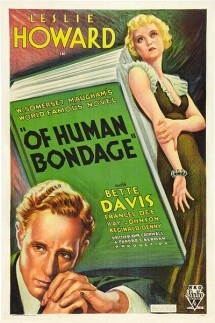
(By W. Somerset Maugham) (Dir. John Cromwell) (1934)
Philip is a club-footed dill and Mildred is a troll. This book is a remarkably honest confession by Maugham (although he steadfastly denied it was autobiography). The teaming of Leslie Howard and Bette Davis in the film is apt but Bette’s role is overripe and unfortunately it shows. Then again, maybe that’s why WSM started batting for the other team.
Continue Reading →Hud
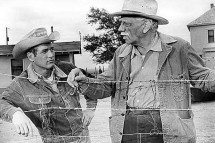
(Dir. Martin Ritt) (1963)
Larry (Lonesome Dove) McMurtry’s novel Horseman, Pass By becomes Paul Newman’s best role, as cattleman Hud Bannon, all ‘barbed-wire soul’ who just can’t feel or do good, lusting after housekeeper Alma, rejecting noble father Homer and corrupting nephew Lonnie.
A relentless tale of the harshness of life on the land, with a bitter foot-and-mouth twist, Ritt’s brilliant and stark production makes his version of Spy Who Came in from the Cold look like The Sound of Music. Great work by all, especially Newman, Patricia Neal incomparable as Alma, and Melvyn Douglas monolithic as the old man.
“You’re an unprincipled man, Hud.” “Well don’t let that fuss ya. You got enough for both of us.”
Continue Reading →Mr Turner
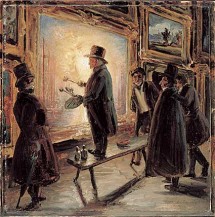
“Grrrrr.” Stoically holding back the memories of Dali’s opinion of J M W Turner (1775-1851) which we largely share, and of many of Mr Leigh’s previous films (a herd of head-in-oven slices of domestic life), The Varnished Culture settled down to see this handsome period piece on the famous British proto-impressionist. To our disadvantage, we had failed to recall the usual outcome of painterly biographies – more agony than ecstasy.
It doesn’t look bad – lots of lovely brown and gold set pieces, a la Peter Greenaway, and a terrific re-creation of the Fighting Temeraire tugged to its last berth to be broken up, but as a film it plays like many of Mr Turner’s unsatisfactory pastiches – over-daubed, ill-formed, smudged. Unedifying scenes of old folks going in and out of rooms predominate.
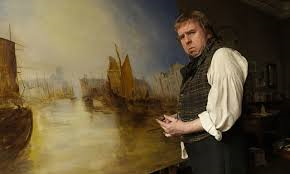 It’s merely a badly-constructed series of vignettes with the type of audience-exposition dialogue that went out of fashion in the 1950s: “Good day, Mr. Constable.” “You’re a man of great vision, Mr. Turner.” John Ruskin (here played as lisping loon) pops up to give us a tutorial on JMW’s genius, while the genius sits silent, humble and not demurring.
It’s merely a badly-constructed series of vignettes with the type of audience-exposition dialogue that went out of fashion in the 1950s: “Good day, Mr. Constable.” “You’re a man of great vision, Mr. Turner.” John Ruskin (here played as lisping loon) pops up to give us a tutorial on JMW’s genius, while the genius sits silent, humble and not demurring.
Mr Turner (sometimes ‘William’, sometimes ‘Mr Mallord’) as rendered by Timothy Spall, trudges around, spits and grunts (“Grrrrrr!) but in a kindly, knowing manner, like Dr Zaius in Planet of the Apes.
Gruff and phlegmatic, he is an uncertain insider, as comfortable at the Royal Academy as Beethoven in a brothel, or T.S. Eliot on Margate Sands. But all we get is a pot of paint thrown in our face. We don’t get any sense of Turner’s drives, desires, or the reasons for and context of his talent.
So, “Grrrrrrrr…I’ll not be able to raise me pot of grog to such a vile, dirty, yellow mess…for even a man who’d made no films would struggle to make one as empty and dull as this.”
Continue Reading →
Memento Mori

Don’t let the question of who is making the famous “Remember you must die” phone calls distract you, o gentle reader, from the more important reflections on memory, sanity, guilt, narcissism and avarice raised in this searing novelette. Although under threat, a phalanx of elderly people simply up the ante and behave even more badly than they did in their (adulterous, manipulative, black-mailing) youth. There are amusing characters – a bellicose poet who gets into fisticuffs with a crippled but no less fearsome critic over the reputation of a dead poet – a would-be Margaret Mead of the geriatric who studies the elderly; assiduously noting their vital signs before, during and after the receipt of upsetting news (some of which he facilitates). And there are monsters, – Mrs Pettigrew and Sister Bastard are fine examples. There are those who appear to be vulnerable and (sometimes) pleasant (Charmian and Taylor). But not one of these elders is what you would call “moral”; nor would you want any one of them as a lunch companion. However, if you find something of value in the pitiless exposure of conceit and self-delusion and in the exposition of the futility of action, of inaction, of mean-spiritedness and of generosity, then this book is for you…
Continue Reading →Lucky Jim
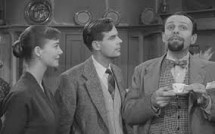
(by Kingsley Amis) (1954)
Grand-daddy of English campus novels, a funny yet serious tale of angry young man Jim Dixon who rebels yet wants in; despises and embraces the bourgeois groves of academe and despite some hilariously bad behaviour, flourishes.
Sex and alcohol are pursued with as much fervour as learning: it was ever thus, we suppose. But you haven’t lived till you follow the account of Jim’s keynote lecture on “Merrie England”
Continue Reading →
Macbeth

(by William Shakespeare) (1606) (Dir. Justin Kurzel) (2015) (Advance screening, Adelaide 29/9/15)
[Films noted in passing: (Dir. Roman Polanski) (1971), (Dir. Orson Welles) (1948)]The Scottish Play is the Bard’s tightest, tautest, most nightmarish work, It contains his best poetry – in fact, almost every line is superb and has no waste. It’s personae encapsulate all of Freud and his successors, but says it better. Macbeth lays bare for us the fatal links whereby valour and honour, under the strains of chance, imagination and “vaulting ambition”, lead to evil acts, and ultimately, overweening psychopathy – a manual showing us how one good, or bad, step downwards leads to the next, and so on, all the way to the moral depths. The protagonist spends the drama clattering down those steps; pushed by the witches, by the missus, by the casual indifference of his peers, almost but not quite against his will. Hence, one’s reaction to Macbeth (properly read, or staged) is repulsion mired with the hope he’ll get away with it.
Orson Welles’ version has mostly interiors which heighten the theatricality of the story. Dark, cheap (made in 21 days at humble Republic Pictures) and stark, delivered in thick Scottish burrs, Welles styled it as “a kind of violently sketched charcoal drawing of a great play” and Welles’ biographer Barbara Leaming (1985) suggested that the Big Guy made it as an experiment in film-making on a sparse budget and to a tight deadline. It works, though here Macbeth comes across as Harry Lime with a brogue and funny hat, and the fact it does work owes much, or most, to the man who penned it 342 years before.
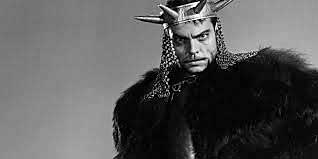
“I am in blood stepp’d in so far that, should I wade no more, returning were as tedious as go o’er…”
In Polanski’s vivid, cinematic adaptation, authentic crones meet on a grim Caledonian beach and agree to meet the naughty Scots lad on the heath, after the hurley-burley. Mud, blood, water, sand and smoke abound, as do gritty performances, in particular Jon Finch, Francesca Annis as the Lady, Martin Shaw as Banquo, John Stride as an enigmatic Ross and a wild, eye-rolling Terence Bayler as Macduff, who appeared to have untimely ripp’d himself from mother’s womb.
Polanski uses sound beautifully, and the medium serves with many of the brilliant soliloquies unspoken, heard as dark monologues of thought. Ambient noise is muted as the guilt-haunted villain creeps about his repellent palace, Saddam Hussein-like.
Like Bob Hawke, the hosts’ hands are all encarnadined. The Scottish Play is awash with blood (“Blood will have blood”) but the blood-letting is satisfying, and the visuals (which seem to have inspired Monty Python and the Holy Grail) very impressive.
Harold Bloom says Macbeth is “a tragedy of the imagination.” He regards the blood and gore as secondary to and consequent upon the vast range of Macbeth’s ambition and imagination. We agree but it is hard to get past the fact that blood and gore is so very Scottish – quintessentially so (a Shakespearean Scotch stereotype if you will**, but as George Clooney says in Up In the Air, stereotyping saves a lot of time).
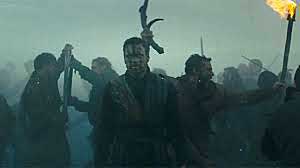 The Varnished Culture is fortunate to have influential friends: thanks Melanie from the Theatre Guild! And so we were treated to an advance screening at the Nova Cinema, of the version by Justin Kurzel, with Michael Fassbender and Marion Cotillard as the Bloody Royals of Alba. Director Kurzel had limbered up for the niceties, etiquette and manners of High Middle Ages Scotland by previously making that delightfully charming film, Snowtown.
The Varnished Culture is fortunate to have influential friends: thanks Melanie from the Theatre Guild! And so we were treated to an advance screening at the Nova Cinema, of the version by Justin Kurzel, with Michael Fassbender and Marion Cotillard as the Bloody Royals of Alba. Director Kurzel had limbered up for the niceties, etiquette and manners of High Middle Ages Scotland by previously making that delightfully charming film, Snowtown.
We report that there was some good playing – Fassbender was fine as Macbeth although his speech strayed to contemporary-colloquial sometimes, and Cotillard oozed vibrancy as his lady, although her Mark-of-Cain forehead-blemish distracted some of us. Macduff (Sean Harris) was gritty in a lock-stock-and-two-smoking-barrels-sense, and David Thewlis was impressive as King Duncan, seeming a Real king in a rather wet role. The director had an interesting take on Ms Macbeth’s infamous (and ambiguous) childlessness: the film opens with an infant’s burial on the heath, and a variable number of witches appear and re-appear with a small child – moreover, small children manifest themselves throughout, often without visible motive. Which brings us to a major quibble. Leaving aside the splendid emoting; some gorgeous visuals of Scotland’s saw-toothed mountains, blasted heaths and bronzed light (complete with what seemed to be ambient cherry blossoms – suddenly it’s Kurosawa’s Throne of Blood!), and ignoring the modern tendency to speak the play as prose rather than poetry – the problem here was simple – textual vandalism. One wondered, one spluttered, one cringed. For example:
Which brings us to a major quibble. Leaving aside the splendid emoting; some gorgeous visuals of Scotland’s saw-toothed mountains, blasted heaths and bronzed light (complete with what seemed to be ambient cherry blossoms – suddenly it’s Kurosawa’s Throne of Blood!), and ignoring the modern tendency to speak the play as prose rather than poetry – the problem here was simple – textual vandalism. One wondered, one spluttered, one cringed. For example:
(1) The witches plan to meet their mark on ‘the battlefield’. Actually, they are to meet with Macbeth “Upon the heath.” There is no assonant effect from “battlefield”. So why change the line? Did the director want to accentuate his nifty, Lord of the Rings style battle scenes?; (2) After battle, Duncan invites himself to newly-promoted Macbeth’s castle at Inverness. Yet in this film, they seem to repair to what looks like a scout camp in the middle of nowhere. Surely the Thane of Glamis had better digs?; (3) Macbeth’s great soliloquy, wrestling with his conscience as he follows the spectral dagger towards the doomed Duncan, is completely subverted by the ham-fisted and meaningless device of having the dagger carried by the ghost of a boy who died earlier in battle (did the crew forget to order the fishing wire?); (4) Shakespeare, the wisest dramatist who ever lived, doesn’t show us Duncan’s murder but here it is, in all its sanguine glory (to be fair to Kurzel, he’s not the only filmmaker to fluff this decision); (5) After the regicide, the film has Macbeth defy Malcolm, virtually admitting the deed, and driving the true heir away in terror. This simply won’t do; (6) There are illogically discarded scenes – the witches submit to a few edits, the (excised) porter answering at the gate is not just comedy relief but an important part of the whole theme of frustrated impotence, and Lady Macbeth’s disingenuous response to news of Duncan (“Woe, alas! What, in our house?”) is deflated by the suspicious Banquo (“Too cruel any where”) but not here!; (7) Macbeth gets the news on Banquo from the murderers whilst at table in the dining hall with all the thanes, lords and attendants (!); (8) Is Macbeth’s dreadful spree an act of impotence? His porter insinuates it; his ‘childless’ wife implies it often. When she hurls herself from the battlements, Shakespeare has Macbeth respond with the richest nihilism in all literature:
“To-morrow, and to-morrow, and to-morrow,
Creeps in this petty pace from day to day
To the last syllable of recorded time,
And all our yesterdays have lighted fools
The way to dusty death. Out, out, brief candle!
Life’s but a walking shadow, a poor player
That struts and frets his hour upon the stage
And then is heard no more: it is a tale
Told by an idiot, full of sound and fury,
Signifying nothing.”
But in the film, Macbeth says these words whilst tenderly gathering up his dead wife (from a bed), rendering this great speech not only superfluous but incongruous as well; (9) we won’t be dogmatic about this, but was that woad on everyone’s faces? Braveheart? Really?; and (10) The final battle is a damp squib indeed. Macbeth doesn’t combat as one capable of un-seaming opponents “from the nave to the chaps” and rather meekly meets his fate (and also keeps his head – did the crew forget to bring a shovel?).
In summary, a good effort, with some worthy aspects and interesting takes – but for God’s sake, if you’re going to make Macbeth, read it first.
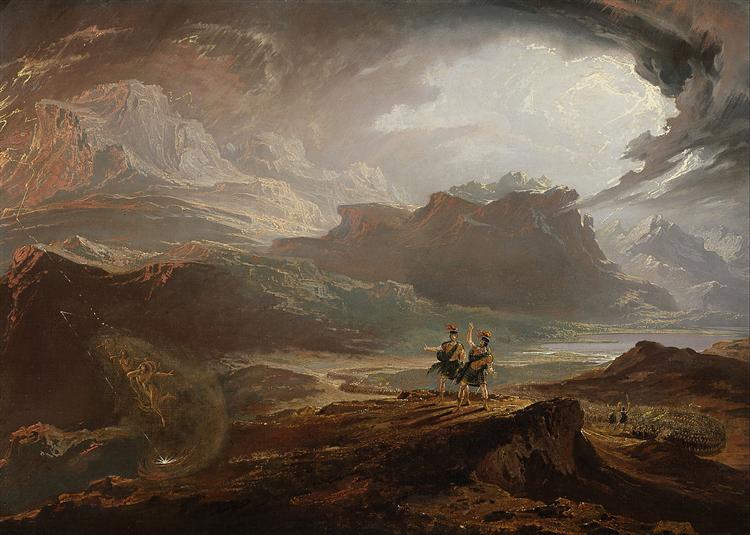
By John Martin (1820)
{** (Scottish stereotypes: TVC has MacKenzie blood, so we feel able to libel the Scots. Duilich!}
Continue Reading →


